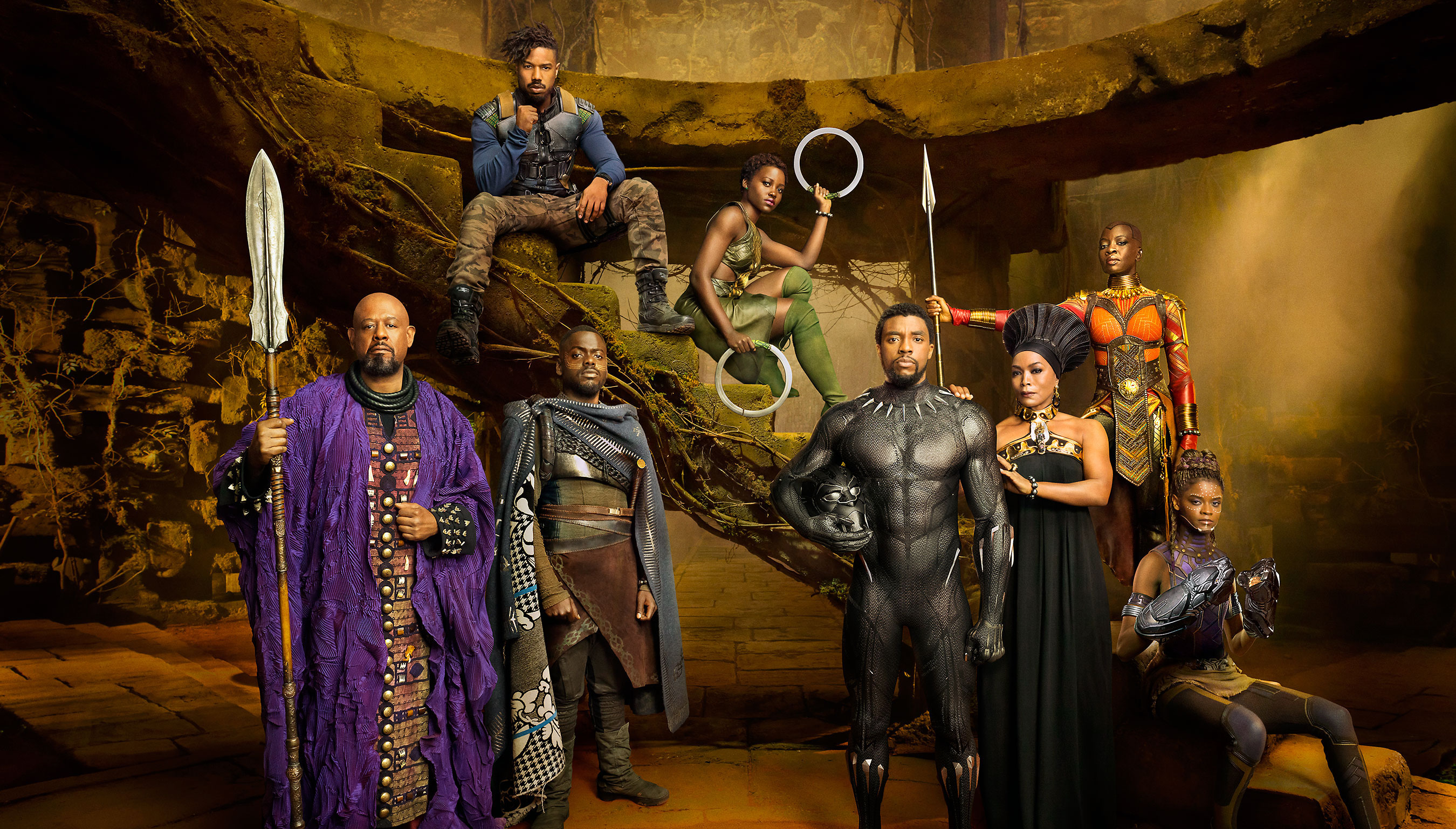Most of my friends and family saw the Black Panther movie two or three times. I saw it twice during the week it was released. I first viewed it on opening night in Kansas City, MO, with a group of PICO colleagues. This was preparation for my visit to Chicago where I would interview Dr. Otis Moss III of Trinity United Church of Christ for the Prophetic Resistance Podcast. We spoke after viewing it a second time with his congregation. Since that visit, I have been scheming the next opportunity to view it, stream it, purchase it, and binge it.
When a film captures my imagination, I tend to watch it again and again, as is the case with the Black Panther. The journeys of T’Challa, Shuri, Nakia, Okoye, and Killmonger have become another prism through which I can re-imagine the world and cultivate Beloved Community. Considering the racialized and gendered outcomes of both our conception (imaginings) and practice of power, communities of color and people of faith are overdue for a new vision. Just the notion of Wakanda — a land largely untouched by the legacy of hegemonic, imperial violence and desecration — opens up imaginative possibilities (and cautionary tales) for communities committed to human dignity, just economies, and deep belonging.
When I launched the Prophetic Resistance Project, which includes a podcast, I envisioned it as a space for “sacred reimagining.” The narrative model at the center of the project — Theology of Resistance — facilitates the creation and transmission of stories that activate our faith-filled commitments to resist injustice and cultivate Beloved Community together. We seek to instigate uncommon encounters that disrupt our presumptions about ourselves and our world, clearing a path for reimagining and making a world where racism and patriarchy are robbed of their power to distort and diminish our humanity.
By engaging the powerful stories from our lived experiences and our sacred traditions, we are constructing a multi-faith, multi-racial imagination for the work of justice and healing in our communities, nation, and the world. We are working to equip faith leaders and tribal elders with the tools to create spaces for sacred reimagining in their own communities. We endeavor to accompany clergy and congregations in their engagement of the broader community with a compelling and disruptive vision of Beloved Community. We are partnering with our faith and justice organizations to translate these visions into public acts of resistance, concrete policy solutions, and transformative ways of living in community.
In our podcast interview with Pastor Moss about the Black Panther, we touched on the power of imagination to reshape our understanding of self, others, and even the sacred. “Imagine,” he suggested, “what your theology would look like if Hagar and Sarah look like Viola Davis and Octavia Spencer…All of a sudden, it would be difficult to engage in certain activity if I see the people who I’m interacting with as also a part of the lineage of my religious tradition — then, truly, Black lives would matter.”
What if we could remove the “white gaze” and imagine ourselves anew? What if our notions of power were informed by Womanist, Mujerista, Indigenous, and Asian ethical frames and theologies? Our organizing practices could be re-imagined to, as Dr. Reggie Williams suggests, “undo the way humanity has been structured by white supremacy itself.”
What if we could have Wakanda forever? After watching the Black Panther, I engaged in multiple conversations via text, phone, and social media with organizers, clergy, and leaders about the impact of the movie. Most of these exchanges centered on the power of this story for understanding and reimagining our current reality. Among faith leaders, it was clear that Wakanda itself was as powerful a character as T’Challa and Killmonger. It presented viewers with a “mind palace” for the cultivation of Beloved Community. “Wakanda is the imaginative space that Black Liberation Theology has always sought to create,” suggested my colleague Rev. Nelson Pierce.
What if the theologies of resistance that we cultivate in this moment were rooted in the possibility of Wakanda? It would reshape how we engage, partner, with and follow young people “marching for their lives” against gun violence. It would radicalize our notions of citizenship and belonging as we stand with and protect immigrant organizers and families targeted, surveilled, and rounded up by ICE. It would teach us to trust the Dora Milaje wisdom and imagination of Black women in matters related to the thriving and flourishing of all Black lives. It would even root out the logic and impulse of empire embedded in our spiritual traditions and practices.
Empire is always with us. There are powerful narratives and structures that keep us isolated from one another and perpetuate injustice. Our organizing calls us to get into relationships across difference and interrupt patterns of alienation. Our organizing calls us to “see again” the ways in which we can be architects of Beloved Community. So we must be vigilant in our practice of encounter, disruption, reimagining, and action.
For if we are not cultivating a moral imagination together, we are probably living inside someone else’s.

